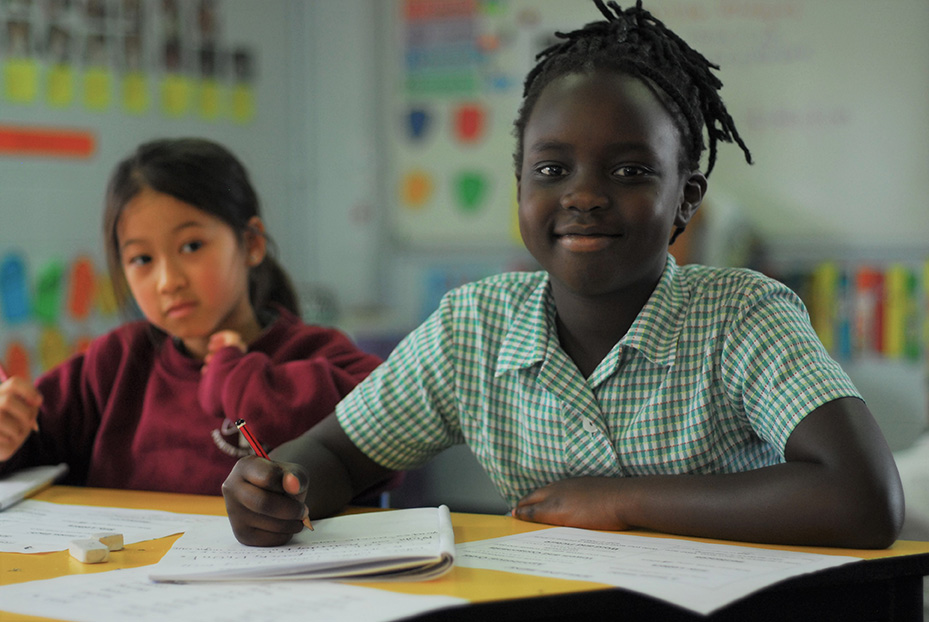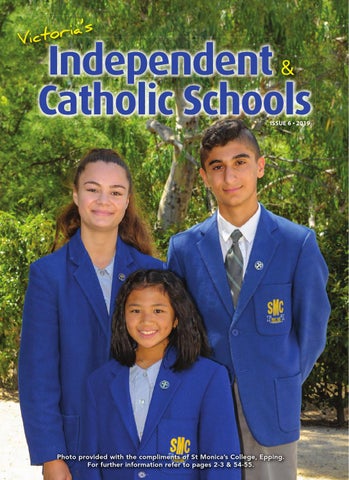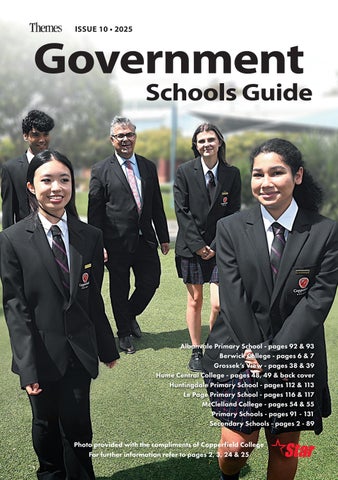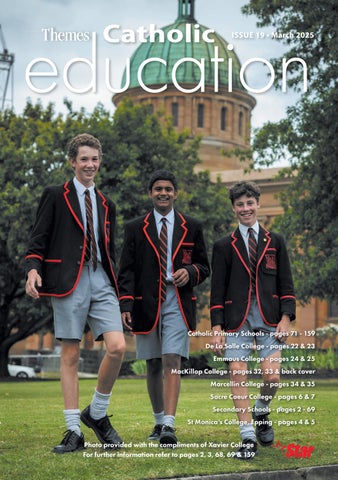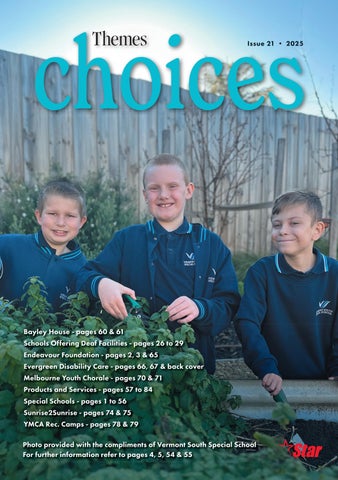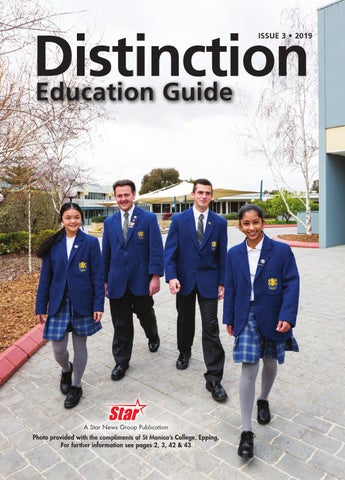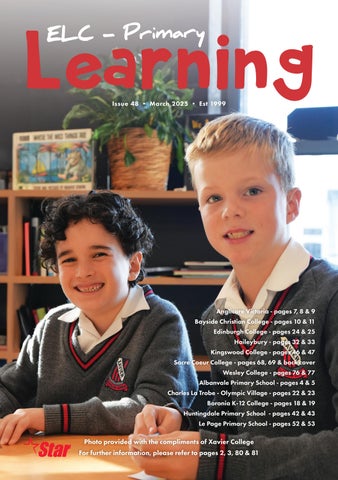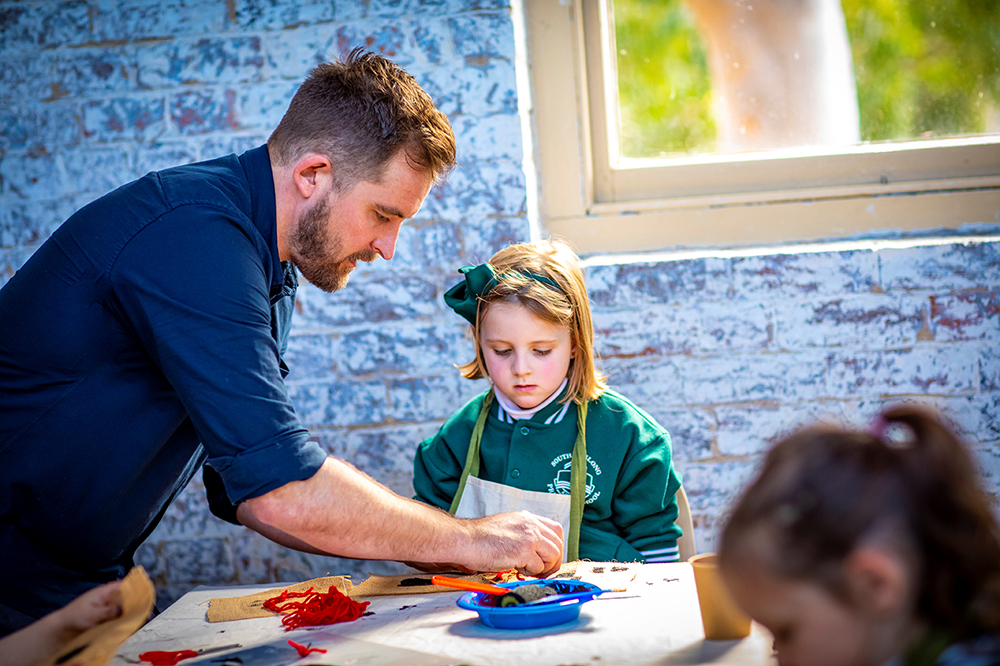Executive Director of Melbourne Archdiocese Catholic Schools (MACS) Jim Miles says Catholic schools provide a high-quality, faith-based education of the ‘whole person’ that nurtures each child’s unique talents.
‘Catholic schools work in partnership with families to develop young people whose minds and lives are empowered by their Catholic education to be active, responsible and virtuous contributors to the common good’, Mr Miles said.
‘Respecting the dignity, diversity and contribution of each person, Catholic schools seek to be compassionate in all their relationships and strive for excellence in all they do, from serving their communities to being academic leaders.’
Mr Miles said a holistic approach to education enriches the intellectual, physical, spiritual and emotional lives of students.
‘Our emphasis on the whole student has also been endorsed by academic research, with a Curtin University study showing Catholic school graduates enjoy higher levels of life satisfaction.’
Mr Miles said various research partnerships and professional development programs for teachers underpinned contemporary teaching and learning, which has helped drive above state average outcomes in NAPLAN, VCE and VCAL across the sector.
‘Our schools are deeply committed to excellence in teaching and learning, including providing extension programs for talented students’, he said.
In keeping with their Christian ethos and a long tradition of education for the disadvantaged, Mr Miles said Catholic schools also aim to be inclusive by keeping fees low and remaining accessible to all who seek their values.
He said that 15% of Victorian Catholic school students are identified as eligible for Australian government disability funding, 15% are from low-income families and around 25% of students have a language background other than English (LBOTE).
‘In an important indication of the inclusive character of our schools, a Melbourne Institute study shows that Catholic school students are far less likely to be bullied than those attending government schools.
‘As part of this, Catholic schools not only aim to create zero-bullying environments based on a genuine concern for others, but also strive to be leaders in child safety.
Mr Miles said Catholic schools encourage parents to become involved in their children’s learning and engage in school life.
‘By working together, schools and families can create an effective learning environment and a climate of mutual respect.
‘As always, Catholic schools continue to respond to the expectations of parents and the changing landscape of contemporary learning to engage students and prepare them as global citizens, equipped to face the world with confidence and sensitivity to social justice issues.’
Parents Ian and Belinda McKay from St Martin of Tours School in Rosanna said the thing they most value about their school is that their children learn about their faith and live it each day.
‘Faith brings people together and strengthens the sense of community and belonging.
‘We have experienced this faith in action many times at our school through the support we have received from the teachers and school community, particularly during challenging times when our daughter has undergone treatment for leukaemia’, they said.
Thuy, a parent from Sacred Heart School, Fitzroy, said: ‘We are fortunate at Sacred Heart to have teachers who are friendly, caring and supportive. I feel safe here, and my kids feel safe too.
‘Our school is great at helping my child to learn and provided amazing support during remote learning. I hope 2021 will be a normal school year, full of success and happiness for my child’, she said.
A commitment to social justice and community service is a vital part of the holistic education offered by Catholic schools.
Agatha Scandizzo and Angela Cremona are the St Vincent de Paul student program leaders at Nazareth College, Noble Park North, in 2021.
‘As Vinnies leaders, we aim to implement our faith in everything we do. We feel it is our responsibility to help those less fortunate,as Jesus did.
‘The Vinnies team helps bring our school community together and makes a difference in people’s lives.
‘We are always amazed by the generosity of our school community, yet it is seeing the impact of our work that is most rewarding’, Agatha and Angela said.
Mr Miles said the pandemic we all faced in 2020 made for a challenging year for school communities as they worked hard to support the learning continuity and wellbeing of students, staff and families.
‘However, there are also positives to come from the experience, including more flexible ways of teaching and learning, and strengthened partnerships between schools and families, which our schools aim to build on in 2021.’
More than 155,000 students (or one in five) will commence or continue their schooling journey with one of 333 Catholic primary and secondary schools across the Archdiocese of Melbourne this year.
A new era for Catholic Education
2021 marks a new era for Catholic education with the establishment of MACS by Archbishop Peter A Comensoli.
This change sees 290 schools owned by the Archdiocese and its parishes transferred to MACS, which is now responsible for the governance and operation of these schools.
Archbishop Comensoli said: ‘The establishment of MACS is a necessary and constructive change to the operations for our schools that not only reflects community expectations about the operation of schools, but keeps our Christ-centred mission at the heart of all we do in Catholic education.’
The change builds on the rich legacy of parish priest governance and ongoing pastoral leadership of Catholic schools, and provides the opportunity to continue to support and collaborate with schools operated by religious institutes, ensuring that all Catholic schools thrive and develop as a mission of the Archdiocese.
A key feature of the new arrangements for MACS-governed schools is the establishment of School Advisory Councils (SACs), providing a structure for collaboration between school leaders, parish priests, parents and school community members.
A growing sector
With Catholic education’s growing popularity as a school choice and the expansion of school communities planned over the next decade, now is an exciting time for the Catholic school community in Victoria.
This year more than 155,000 students – more than one in five – are enjoying a Catholic education in 333 schools across Melbourne. Catholic education is by far the second largest provider of schooling in Victoria.
In 2020, two new Catholic schools opened in the rapidly growing areas south of Geelong: St Catherine of Siena Catholic Primary School, Armstrong Creek, and Iona College Geelong, Charlemont.
In 2021, St Joseph’s Catholic Primary School has opened in the Parish of Werribee.
Planning is underway for additional schools in coming years to meet the needs of families, particularly in the western and northern regions of Melbourne. These include:
• St Lawrence of Brindisi Primary School, which is scheduled to open in the Parish of Melton South in 2022, with a site purchased for a secondary school in the parish scheduled to open in 2023.
• Holy Cross Primary School, which is scheduled to open in the Parish of Craigieburn in 2022.
• Mary, Queen of Heaven Primary School, which is scheduled to open in the Parish of Gladstone Park in 2023, along with a new primary school in the Parish of Hoppers Crossing North.
Did you know?
• University of Melbourne research has found that Catholic schools add an average of six points to tertiary admission ranks, or ATAR scores, at the crucial career-defining end of a student’s school journey.
• A Curtin University study makes special mention of the ‘social capital’ contributed to the greater good of the community by graduates of Catholic schools.
• A 2020 report, ‘Australian Schools and the Common Good’, found that Catholic school graduates are the highest earners with an average annual household income of $99,722, according to a recent study of Australians aged 25–39. This compared with $90,849 for independent school graduates and $85,489 for government school graduates.
If you are interested in a Catholic education for your child, please contact your local Catholic school or visit www.macs.vic.edu.au/Our-Schools.aspx.

